AFFILIATE MARKETING
15 Best Real Estate Affiliate Marketing Programs For Big Profits in 2023

Are you a real estate agent looking for a second income stream? Or maybe you’re an affiliate marketer looking to tap into the lucrative real estate market. Either way, these real estate affiliate marketing programs are going to offer you a ton of opportunities to make extra money.
Property investors, property owners, property managers, and first-time buyers are always looking for information and tools to help them navigate the real estate market.
By sharing real estate affiliate programs, you can help your audience find success in the property world, and you will earn passive income – so it’s a win for both sides!
Let’s take a look.
Best Real Estate Affiliate Marketing Programs
Ready to learn about different real estate affiliate programs?
Below, I’ve detailed 15 of the best, alongside the average commission rate, cookie duration, and what the real estate affiliate program offers.
1. All Things Real Estate
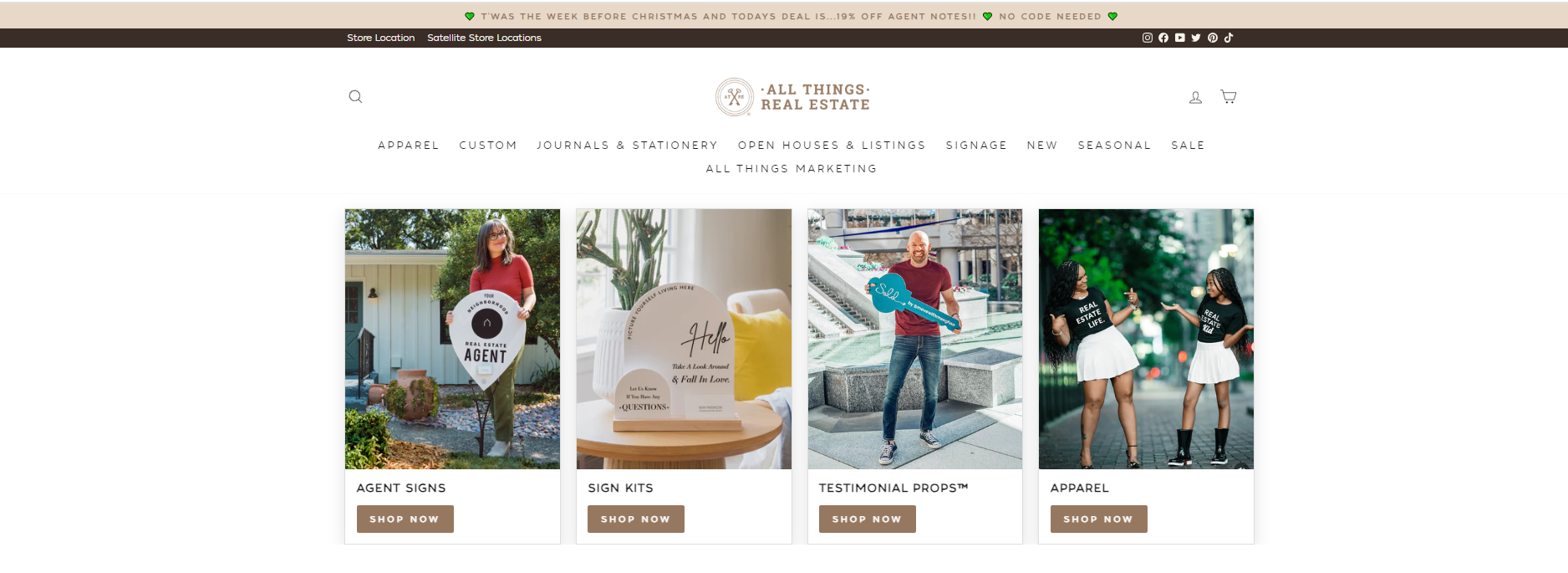
All Things Real Estate is a company that offers a range of tools to run a real estate business, such as advertising materials, signs, apparel, banners, and more.
They have a real estate affiliate program where you can make a 15% commission for every sale made through your affiliate link.
There are plenty of products to promote on your real estate blog, and the affiliate sign-up process is simple; you just need to register, which takes a few minutes.
Want more ways to earn in the industry?
Check out these real estate business ideas that make really good money.
2. Colibri Real Estate (Formerly Real Estate Express)
Real Estate Express, now rebranded as Colibri Real Estate, is a real estate education company that has helped millions of aspiring real estate professionals.
They offer flexible learning options for students, and they have support from over 130+ real estate instructors.
The site offers a range of training courses to help professionals:
- Get licensed
- Prep for exams
- Post license
- Continue their education.
This is a great program to promote for real estate affiliate marketers to help aspiring realtors build a career in the industry.
3. Architectural Designs
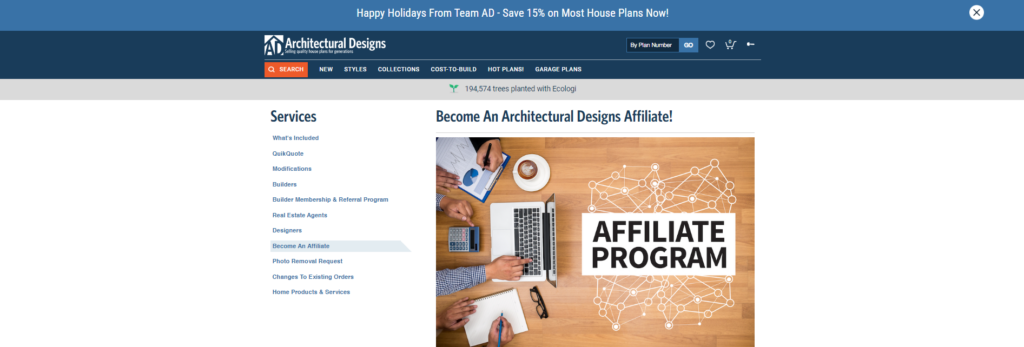

Architectural Designs is a real estate website that sells custom house plans, garage plans, and cost-to-build reports.
Builders, real estate agents, and designers must pay a licensing fee to access these plans, and they can pay for an upgrade to receive important extras.
This means the total transaction value of a sale can be quite high (often $1,000+), so you can earn a decent commission as an affiliate when someone buys through your link.
4. Avail.Co Partner Program
Avail is a landlord software that offers a complete range of tools and educational content to help a person succeed as a landlord.
Using Avail, landlords can:
- Find tenants
- Manage rental listings
- Sign leases
- Track maintenance
- View credit history
- Collect rent
- Use the rental property calculator.
Because of its ease of use and helpful tools, the Avail app has become quite popular in the real estate industry.
By joining their real estate affiliate marketing program, you can earn $20 for every referral.
Commission: $25 for every successful referral
Cookie Duration: 60 days
Affiliate Program: Via Tapfiliate
5. Buildium Real Estate
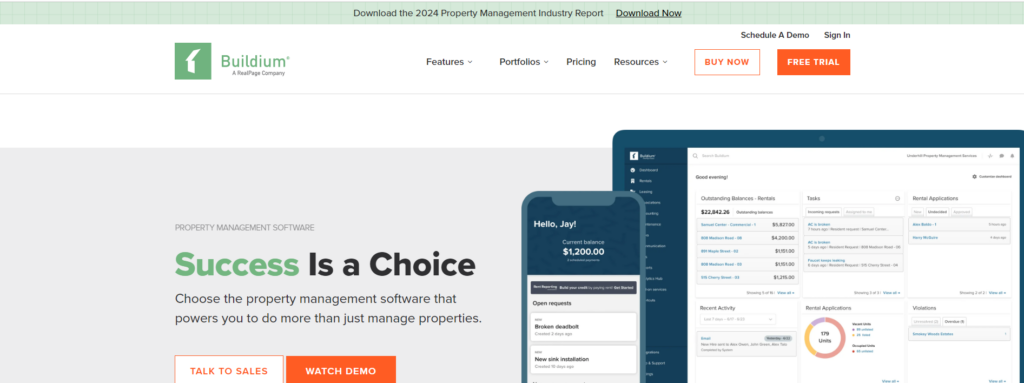

Buildium is a property management software that offers a range of useful features, such as:
- Accounting
- Maintenance management
- Vendor management
- Communications
- Resident center
- Onboarding and support
- Much more.
Landlords and property managers can also use the data and insights tool to get personalized data insights to help grow their businesses.
If you promote their real estate affiliate program, you can earn 25% of every new monthly subscriber that signs up through your affiliate link, and with plans starting at $150/month, this is one of the best referral programs to get involved with.
6. Land Century
Land Century is an online marketplace helping people search for vacant land and cheap houses.
Setting up a business profile and posting a single listing is free, but it charges between $49 – $149/ month for 20 to 100 property listings.
By joining this real estate affiliate program, you can earn a 15% commission for subscription sales, and with many real estate companies coming to this site to offload multiple properties at a time, this could be a worthwhile affiliate program to promote.
Commission: 15% recurring monthly commission
Cookie Duration: 90 days
Affiliate Program: Via Affi.io or FlexOffers
7. Foreclosure.com


Foreclosure is a search engine that allows users to find the best real estate deals before they’re promoted to the mass market.
The site is popular with real estate investors looking for cheap homes to flip or rent out for profit.
If you have a real estate blog focused on investment properties, this could be a great affiliate program in the real estate niche for you to promote.
The site makes money from subscriptions, and you can earn a 25% commission for each new subscriber who buys through your link.
Commission: One-time 25% commission for each new subscriber
Cookie Duration: 6 months
Affiliate Program: Foreclosure.com
Learn more by reading about these real estate side hustles to earn extra cash.
8. Property M.O.B.
Property M.O.B. is a platform where people can learn, grow, and succeed as property wholesalers.
For a one-time fee, users can get access to:
- 30+ real estate investing courses
- 50+ documents and action plans to stay focused.
By joining their real estate affiliate program, you can earn a 20% commission for every new sign-up, which is a decent rate!
Their affiliate program also gives you access to a range of banners and affiliate assets that can be used to promote their courses and services.
9. LeadsBridge
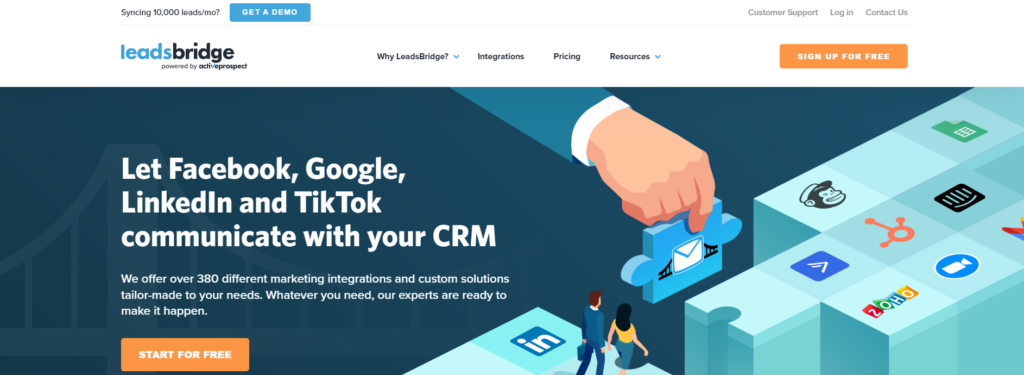

LeadsBridge is a leads management platform often used by real estate experts to track data, manage existing leads, and get more real estate leads.
It offers a range of real estate marketing tools to target potential buyers, and it syncs with other popular apps such as Facebook Custom Audiences, Pinterest Audience Targeting, and more.
Subscriptions to use the site range between $22 – $999/month billed annually and you can earn 30% of all sales made through your affiliate links.
10. Real Estate Affiliates
Real Estate Affiliates offers one of the best real estate affiliate marketing programs where you can choose to earn in several ways, such as:
- CPA (cost per action)
- CPL (cost per lead)
- Revenue share.
The one big difference about this platform is that it’s dedicated to real estate crowdfunding and it works across 175 countries and deals with over 10 million real estate transactions each month!
Once you sign up for their affiliate program, you can enjoy payments twice a month, exclusive campaigns, extra rewards, and help from a dedicated affiliate manager.
11. Lex Levinrad


Lex Levinrad has been a real estate investor since 2003 and has bought, fixed, flipped, and rented over 1,000 properties.
He now teaches what he learned along the way and, to date, has had over 6,000 students from 56+ countries through his training courses.
He now sells coaching and boot camps like the following:
- How to fix and flip houses
- How to wholesale real estate and flip houses
- How to find foreclosures and quick sale properties
- How to buy your first Airbnb short-term rental property.
Some of the courses cost hundreds of dollars, and with Lex being well-known in the industry, it’s possible you can earn well from this real estate affiliate program.
12. DealCheck.io
DealCheck is software that allows you to analyze any property in seconds to estimate profits and a range of other data.
You can also create professional property reports that can be shared with lenders, partners, or clients.
The software is ideal for wholesalers, real estate agents, and property investors so they can navigate their way to the best real estate deals.
Real estate affiliates who promote the DealCheck affiliate program will earn a 30% recurring commission for every new subscriber.
Plus, they pay a generous $100 bonus for every 10 new subscribers who sign up through your referral links.
13. Vrbo Affiliate Program
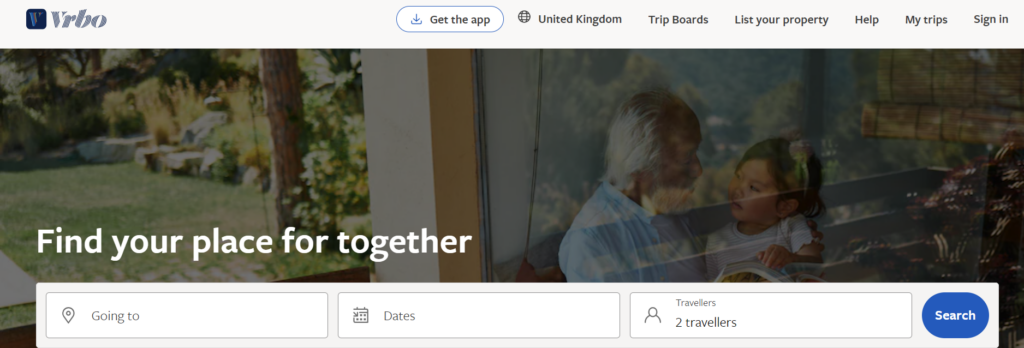

VRBO is a platform that connects travelers with short-term rental properties.
All different types and sizes of property can be found, including:
- Flats
- Houses
- Cabins
- Cottages
- Villas
- Chalets
VRBO is part of the Expedia group, so by signing up for their real estate affiliate program, you’ll also be able to promote multiple other accommodation brands.
Commission: 1.8% on all bookings
Cookie Duration: Cookieless
Affiliate Program: Via Travelpayouts.com
14. Lending Tree
Many real estate investors don’t have the cash to buy a property upfront, so they turn to a platform like Lending Tree for a loan.
Lending Tree allows users to shop and compare loans in minutes and get matched with the five best lenders that’ll all compete for their business.
Other useful tools on the platform include:
- Mortgage rate calculator
- Ratings and reviews for lenders on the network
- Payment calculator
- Credit score and tips on how to boost it.
15. Showcase IDX


Showcase IDX is a WordPress plugin that helps real estate websites improve lead conversion and increase engagement.
It works by adding new functionalities to a site, such as:
- Calls to action
- User-friendly property search
- State-of-the-art mapping tools
- Real estate CRM tools and integrations.
You can expect real estate affiliate income of 10% for referrals through your affiliate link and an extra 15% of any referral revenue generated by your referrals!
Showcase IDX subscriptions cost between $59.50 and $99.95 per month, and your commissions recur for the first 12 months of an active subscription.
Commission: 10% for direct referrals and 15% on the revenue referred customers recommend
Cookie Duration: 60 days
Affiliate Program: Showcase IDX
There are multiple different things you can promote with real estate affiliate programs, such as:
Real Estate Courses
Many people aspire to become a real estate agent or real estate investor.
You can help them on their road to success by promoting relevant coaching programs, courses, and training materials.
Property Listings


Some real estate affiliate programs allow you to promote property listings directly.
This helps real estate agents reach a larger market and potentially get a sale quicker or to get a higher price for the property.
Real Estate Tools and Software
Anything that helps a real estate agent or a property investor do their job quicker or better will be popular.
And, real estate tools such as software to help manage leads or find prospects often charge a monthly subscription, so you can earn an ongoing commission for referrals to these sites.
Real Estate Search Engines


Property search engines are helpful for buyers and sellers to narrow down their search and find what they’re looking for a lot quicker.
By promoting these real estate affiliate programs, you can either earn a one-off fee or recurring commission for the duration someone stays using the search engine.
Lending Providers
Buying a property is often one of the biggest purchases that anyone will ever make.
By promoting lending providers, real estate brokers and real estate blog owners can help clients secure the finance they need to invest in their dream homes.
Final Thoughts on Real Estate Affiliate Marketing
If you have the right target audience, promoting real estate affiliate marketing programs is a great way to earn money on the side.
Whether you choose to promote real estate courses, search engines, tools and software, property listings, or lending providers, you’ll find something to suit.
However, remember not just to promote – offer free, helpful content and weave your affiliate links into the homepage and articles on your real estate affiliate website.
And, if you’re new to this type of side hustle, read about affiliate marketing for beginners to ensure you build your site the right way.
For those seeking a more structured approach to training, consider exploring The Affiliate Lab created by Matt Diggity. This comprehensive program offers valuable insights on building, ranking, monetizing, and eventually selling affiliate marketing websites. The best part? By using our provided link, you can enjoy a $200 discount!
Alternatively, if you’re looking for more training options, check out our article on the best affiliate marketing courses.

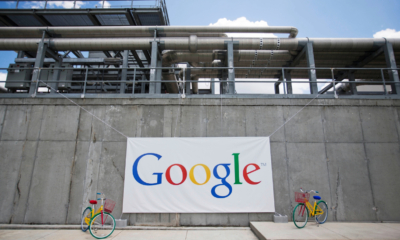



![How AEO Will Impact Your Business's Google Visibility in 2026 Why Your Small Business’s Google Visibility in 2026 Depends on AEO [Webinar]](https://articles.entireweb.com/wp-content/uploads/2026/01/How-AEO-Will-Impact-Your-Businesss-Google-Visibility-in-2026-400x240.png)
![How AEO Will Impact Your Business's Google Visibility in 2026 Why Your Small Business’s Google Visibility in 2026 Depends on AEO [Webinar]](https://articles.entireweb.com/wp-content/uploads/2026/01/How-AEO-Will-Impact-Your-Businesss-Google-Visibility-in-2026-80x80.png)










